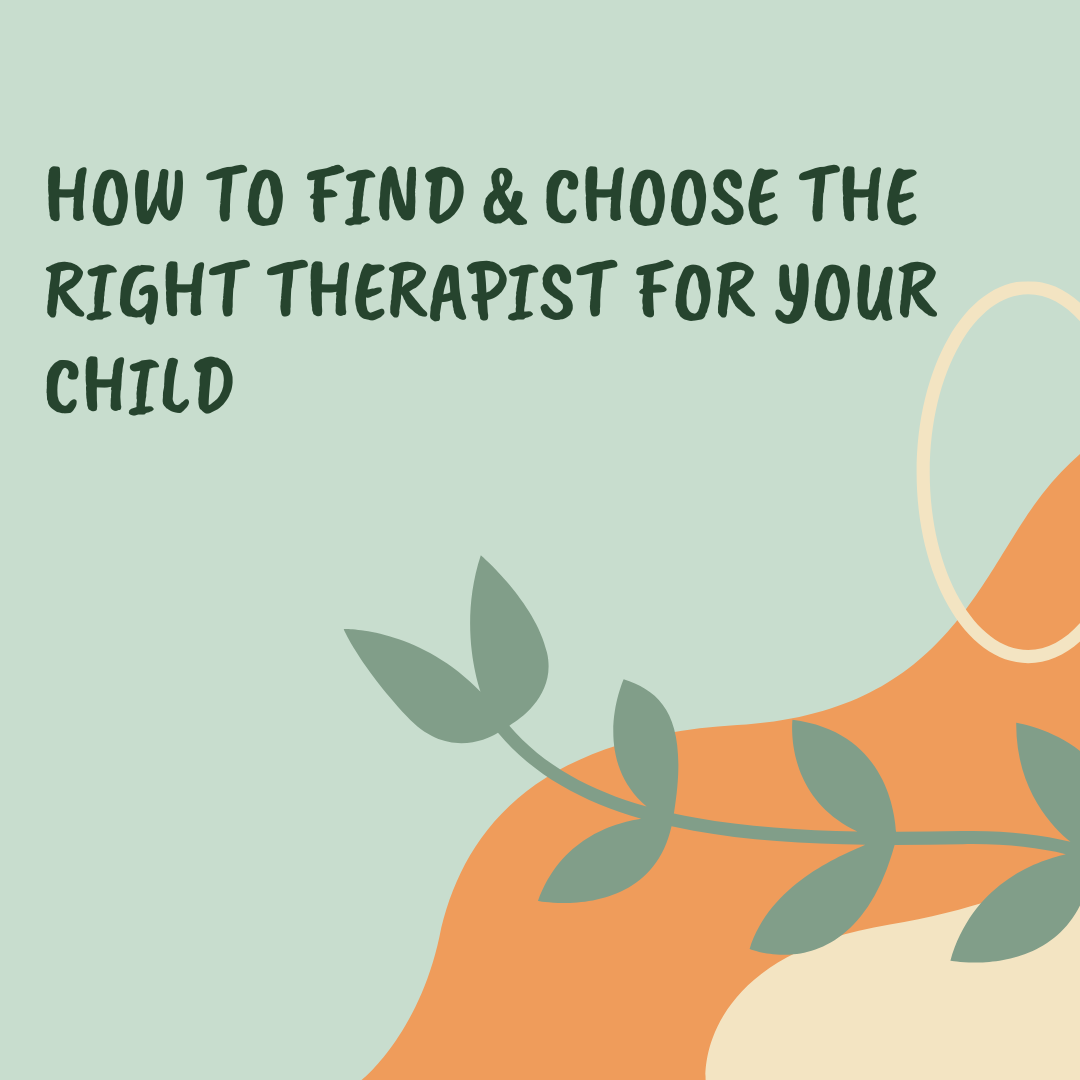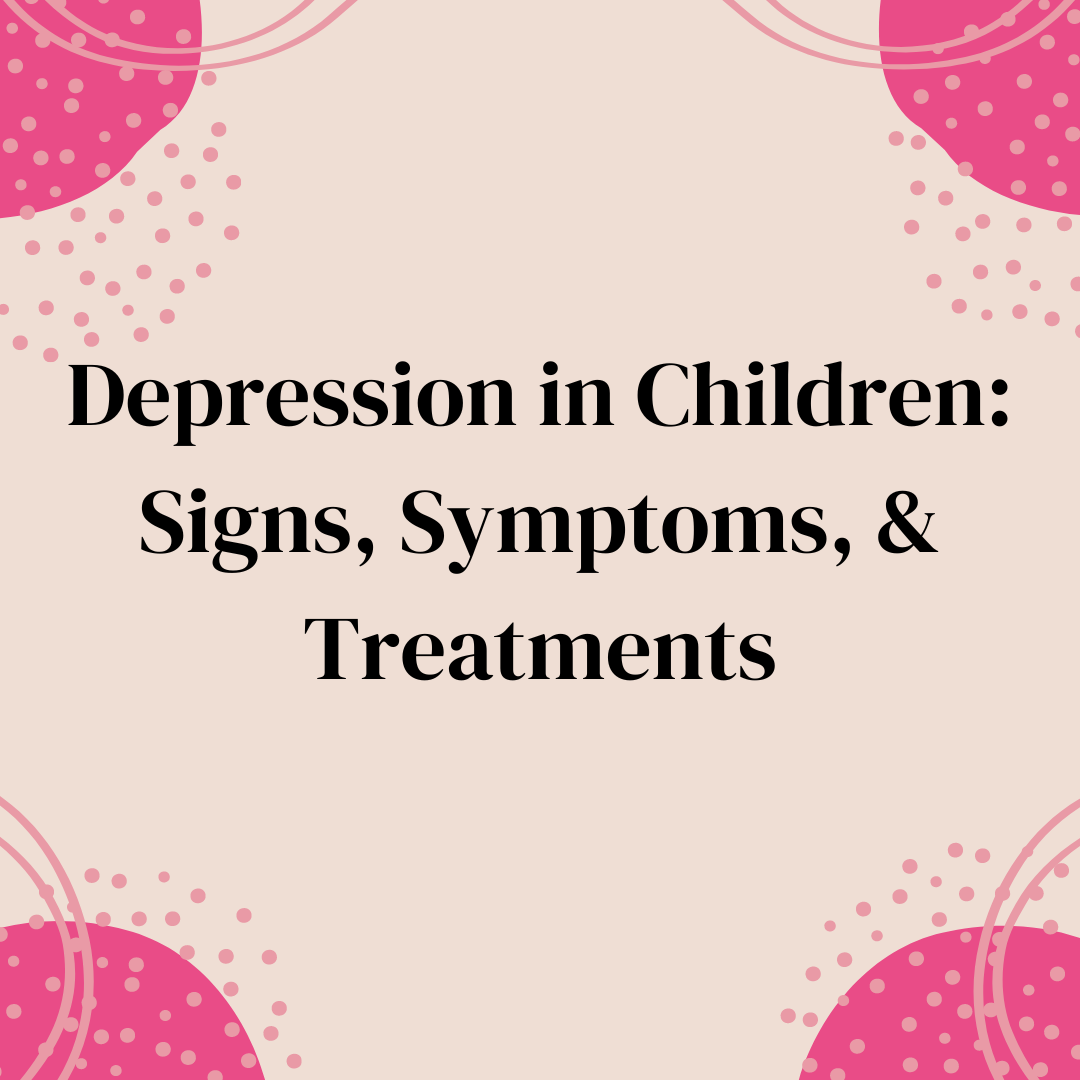If you’re getting divorced, telling your kids is an essential part of the process. Always be honest, listen to them and answer any questions they have. The conversation will vary depending on their age, but trust yourself to know how to best provide support. It’s best to have this discussion when both parents are present to convey a sense of unity.
Are you obsessively asking yourself “Am I a good parent?” Most parents occasionally ask themselves the question. However, if you are constantly worried about being a good parent and cannot control your fears, you might have OCD. Learn More
How to Talk to Your Kids About Divorce
Divorce can be particularly challenging for children, so it’s important to communicate, keep them in the loop, and make them feel secure. This change in the family dynamic can cause the children to feel alone or blame themselves, especially if they’re highly sensitive, so while having any type of serious discussion with children can be difficult, it’s essential for them to feel validated and heard.
“Divorce creates a lot of change and that’s uncomfortable and scary for kids. Even if there has been a lot of tension and conflict in the home, children will be resistant to the idea of divorce,” says Dr. Alicia M. Walker. “For them, it means they won’t have both parents in their home everyday. Younger kids may be concerned about whether there will still be someone to meet their daily needs. They may think it’s their fault. Sometimes younger children believe they misbehaved and caused the divorce.”
Even though most children are relatively in-tune with what’s going on in the home, recognize that they may not have had any awareness or understanding that this was coming. When having the conversation, be aware that your feelings about the divorce will likely differ from theirs, so avoid saying anything negative about the other parent.
Here are 12 tips for how to tell kids about divorce:
- Make it an ongoing conversation: parents should keep an open dialogue with their children. This will help them feel like they’re able to come to their parents with questions or concerns.
- Present a united front: if possible, have the discussion together with the other parent present. This will allow the children to feel like you are both still connected and willing to work together.
- Tell all of your kids at the same time: parents should sit with all of their children at once. Sharing this news simultaneously reduces the chance of any false narratives cropping up. This also helps prevent children from comparing themselves with their siblings.
- Tell them which parent will be staying in the house: parents should explain which parent will be staying in the house and which parent will be moving out. This helps maintain a feeling of normalcy and stability.
- Don’t blame anyone: parents shouldn’t use blame to explain why they are separating or divorcing. The children should not feel stuck in the middle of their parent’s divorce.
- Emphasize that it’s not their fault: parents should clarify that their children are not the cause for the end of this relationship. This helps prevent any added anxiety, stress or associated childhood trauma.
- Keep routines consistent: parents should strive to keep their daily routines with their children the same. Consistency will provide a sense of normalcy and help the kids feel more stable throughout the transition.
- Emphasize that you aren’t getting back together: it’s important for children to understand that while their parents will always be there for them and for the family as a whole, they aren’t going to get back together. This will help them transition with reassurance.
- Don’t make them choose: model respectful behavior in front of your children. This shows them that each home is a safe space and they won’t have to choose “sides.” Parents should also be mindful of using positive language when speaking of the other parent.
- Tell them you love them: reassure your children that you love them and provide much-needed affection. A divorce brings up unsettled feelings and to hear from their parents that they are loved leaves them feeling more confident during a time of change.
- Create stability and security: stability and security are crucial during this time. Each parent should strive to create a similar routine at their individual homes so the children feel comfortable when they transfer back and forth. Regular routines provide a sense of control in their day.
- Explain the changes to come: parents should explain the changes to come and start an open dialogue with their children. This helps them feel prepared and gives them time to process their feelings. It also allows them to feel included and confident that their parents will be honest with them in the future.
Help For Parents Neuropsychological Testing For Children (including evaluations for Autism Spectrum Disorder, ADHD and Learning Disorders) Get answers in weeks, not months. Bend Health provides a complete report with in-depth findings, reviews with your schools, and a clinical diagnosis (if applicable). Learn more Online Therapy & Coaching (ages 1 -17) Bend Health is a virtual mental healthcare provider caring for kids, teens, and their families. Many insurance plans are accepted. Learn More Cooper – Expert Parenting Support Live, Weekly Parent Coaching – Immediate solutions to your most pressing challenges & Small Monthly Group Sessions with like-minded parents. Our experts have 10 years of experience in child development and are parents themselves! Sign up now to get 2 Months Free!
Talking to Young Children (Under 5 Years) About Divorce
Children aged five years and under are unable to fully understand what divorce means or entails, except perhaps that their parents will no longer live together. Their reactions often manifest in attention-seeking behavior, bedwetting, temper tantrums, and a reliance on security objects.1
Keep the conversation with young children simple and provide clear answers to help them to focus on the situation. Talk with them and provide emotional support; a hug and affection can reinforce for them that they’re loved.
Here are 5 tips for how to tell children under five about divorce:
- Validate their feelings: listen to your children without trying to solve anything. Just empathizing with them in the moment will make them feel heard.
- Use books: when parents use books or visual aids to explain divorce, this gives the children a clear understanding of what divorce means for their family.
- Keep it simple: at this age, children do not need to know what each parent did or didn’t do, only what is going on in the moment. Keep the conversation simple.
- Tell your child together: if possible, tell the children together. Use “we” language to show a united front. Presenting this change in the family dynamic together will help the children to feel connected to both parents.
- Show love and support: as always, parents should provide love and support in the way their children need.
Talking to Kids Aged 5-10 Years About Divorce
Young school-aged children typically love and seek constant reassurance from both parents. When it comes to divorce, they tend to blame themselves and fantasize about their parents getting back together.1 They may experience intense grief over the loss of having one of their parents live with them and may also take one parent’s side.
Here are 5 tips for how to tell children aged five to ten years about divorce:
- Find the right time: having a conversation when everyone is calm and together may reduce potential anxiety. Pick a time when the mood is positive and everyone is open to talk.
- Tell them together: telling the children together shows unity and provides a sense of stability and security. It also helps the children feel more comfortable asking questions.
- Do not share details: keeping the focus on what is happening in the present. The children don’t need to know details. They just need to know that you will both love them moving forward.
- Validate feelings and tell them you love them: saying “I love you” and validating their feelings will help children feel secure in a time of change, and can help ward off separation anxiety. Be consistent with affection and provide a safe space for them to share their emotions.
- Listen and answer questions: parents should give their children the opportunity to ask any questions. This will reduce feelings of shame or guilt and make them feel heard.
Telling Preteens & Teens About Divorce
Older school-aged children often feel angry about and grieve the divorce, and may take sides. They could suffer from anxiety and may integrate the divorce experience into their own developing identities.1 While teenagers possess more of an adult understanding of divorce in general, they’re still emotionally immature. They benefit from a stable home life and a sense of security and structure within each home.
Here are 5 tips to tell pre-teens and teens about divorce:
- Be honest: teens understand more at this age, so honesty is important. You don’t need to include inappropriate details, but be open if asked specific questions. This helps them trust their parents and feel connected.
- Tell them together: as with younger children, you should tell preteens and teens together. This allows for a mature conversation and creates a space where everyone can share their feelings.
- Provide stability: pre-teens and teens, just like young children, need to feel secure and stable. Parents should behave consistently and create routines at each home so their children can feel a sense of stability and normalcy.
- Validate feelings and tell them you love them: again, parents should share their feelings, validate their children’s feelings, and say “I love you” to kids at any age.
- Let them know the plan: pre-teens and teens understand more at this age, so share important details and let them know that you will continue to be honest with them at each phase of the transition.
Your child can suffer from YOUR mental health issues! When you get treatment, you are helping your children. BetterHelp has over 20,000 licensed therapists who provide convenient and affordable online therapy. BetterHelp starts at $65 per week. Take a Free Online Assessment and get matched with the right therapist for you.
8 Questions to Expect From Children About Divorce
Children almost always want to know why the divorce is happening; however, their reaction to the news may change as their beliefs about divorce change. This shift can occur due to cognitive maturity and evolving relationships with their parents. Prepare by having simple answers ready, including that you love them and they will be safe.1,2
Here are eight questions a child might ask after hearing about their parents’ divorce:
- Will you get back together: parents should be honest with their children and not give false hope. Be empathetic and consistent in sharing that you are not getting back together. This will help them focus on the present and not fantasize about their parents reuniting.
- Is this my fault: reassure your children that they’re not responsible and this is not their fault.
- Why don’t you love each other anymore: explain that you still respect each other and are still partners in parenting.
- What is divorce: parents can tailor this answer based on age. Keep your answers simple and clear. Share that divorce is about giving them a better, more positive environment.
- Why are you getting a divorce: explain that you worked on the relationship but it did not improve.
- What if I miss mom/dad: keep a set and well-understood schedule, reassuring your child that they can contact either parent at any time.
- Where will I sleep: work on a schedule before answering this question. When parents can share structured times and days, they help their children adjust to the upcoming changes.
- Why do other kids have two parents: kids will inevitably compare themselves with their peers. Parents can explain that while their family may not look like some other families, nothing is wrong.
How Therapy Can Help
As an adult, going through a divorce is hard; it’s OK to struggle when it comes to telling your kids. You may feel uncomfortable and unprepared, but therapy can help with those feelings. If you are stuck and unsure how to move forward, gain more insight and browse a therapist directory to find the right therapist that specializes in relationships and parenting. As you move through the divorce, it may also be helpful to attend co-parenting counseling to establish new practices around parenting with your ex.
“The key to a successful divorce when it comes to kids is to have a low-conflict, harmonious separation and divorce and perhaps more importantly, during the time after the divorce, since you will be co-parents and co-grandparents, forever! You must learn skills for talking without fighting and have full commitment to work as a team on behalf of your children. I recommend finding an excellent mediator and/or therapist who specializes in divorce counseling.” – Howard J. Markman, Ph.D.
Parents should check in with their children and be mindful of any changes in their thoughts or behaviors. If children become anxious, voice worries or concerns, or their mood changes, parents should seek therapy for their child. Online therapy for teens is also a great option. This will help them process their feelings. Other signs to be aware of are if children become isolated from friends, display changes in personality, or act out.
Family coaches can help parents and the family focus on and address their issues, recognize their strengths, and build action plans that align with their values and goals.3 The therapist can help assist parents to develop a positive co-parenting relationship after divorce.4 They can also provide psychoeducation to the parents and children and inform them of common reactions and concerns.4
Final Thoughts on How to Tell Kids About Divorce
Telling children about divorce is difficult but it’s an important conversation to have. As a parent your first instinct is to protect your children, but be cautioned not to burden them with unnecessary details. The discussion should be an opportunity for the parent to be a source of support and comfort to the child as he or she experiences this crisis.4,5
To help our readers take the next step in their mental health journey, Choosing Therapy has partnered with leaders in mental health and wellness. Choosing Therapy is compensated for marketing by the companies included below. Neurological Testing Neuropsychological Testing For Children (including evaluations for Autism Spectrum Disorder, ADHD and Learning Disorders). Get answers in weeks, not months. Bend Health provides a complete report with in-depth findings, reviews with your school, and a clinical diagnosis (if applicable). Learn More Online Therapy & Coaching (ages 1 -17) Bend Health – is a virtual mental healthcare provider caring for kids, teens, and their families. Many insurance plans are accepted. Learn More OCD and Children NOCD – What are the signs of OCD in children? OCD involves unwanted intrusive thoughts, images, or urges (obsessions) that create anxiety, which the child attempts to relieve by performing rituals (compulsions). These rituals can be overt and noticeable (e.g. handwashing, counting, avoiding objects, rearranging materials, etc.) or can be less noticeable or mental (e.g. silently analyzing, reiterating phrases, counting, etc.). To find out if your child has OCD and treatment options, schedule a free 15 minute call with NOCD. Online Therapy (For Parents) BetterHelp – Get support and guidance from a licensed therapist. BetterHelp has over 20,000 therapists who provide convenient and affordable online therapy. Complete a brief questionnaire and get matched with the right therapist for you. Get Started Parenting Support Cooper – Live, Weekly Parent Coaching – Immediate solutions to your most pressing challenges & Small Monthly Group Sessions with like-minded parents. Our experts have 10 years of experience in child development and are parents themselves! Sign up now to get 2 Months Free!Additional Resources
How to Find & Choose the Right Therapist for Your Child Discovering and selecting the right therapist for your child often comes down to two things: research and persistence. Be willing to put in the time and effort to call around to different therapists or therapy organizations in your area. Read through therapist profiles to see if their style, approach, and expertise resonate with you and your child.
Depression in Children: Signs, Symptoms, & Treatments If you or someone you know is concerned about symptoms related to depression, seeking professional help from a mental health provider is highly recommended. Licensed professional counselors, social workers, psychologists, or psychiatric medication prescribers are able to determine whether a person is experiencing depression and the best methods of treatment.




